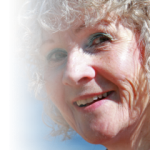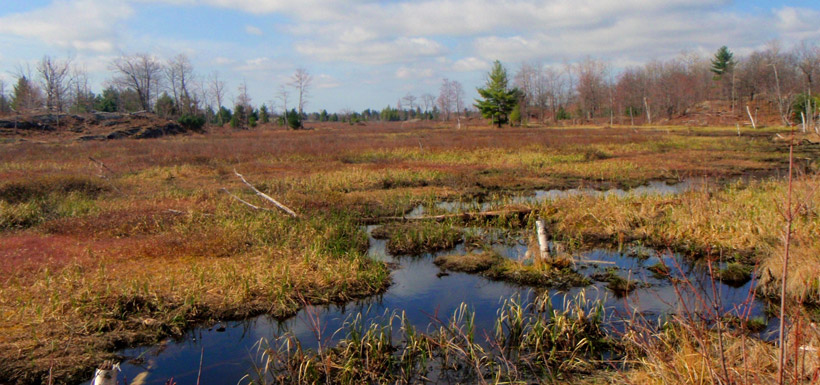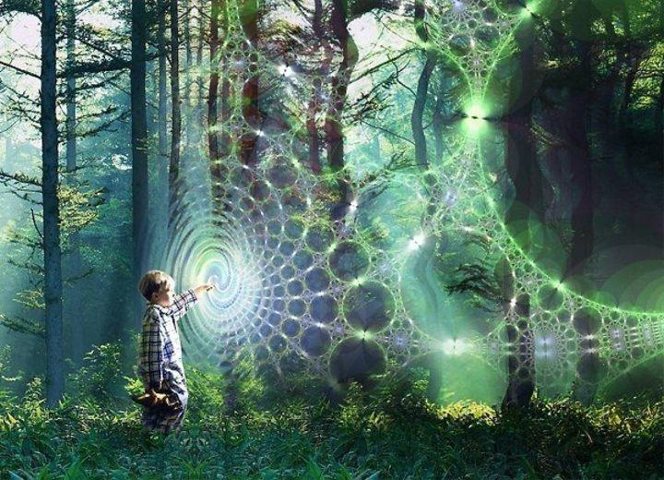 We are never too old to revive our innate childlike wonder. The world of Nature can be a most powerful voice that resonates in our body and our feelings, to remind us that we are biological beings whose health is enhanced by our direct encounters with natural environments. Indeed, we sorely need that reminding. For we live in a time of extraordinary paradox: on the one hand, growing alienation from Nature and even each other as social beings while at the same time, conversely and blessedly, life-affirming and inter-folding global movements are gaining momentum to re-engage human relationship with Nature as well as with our own inner life.
We are never too old to revive our innate childlike wonder. The world of Nature can be a most powerful voice that resonates in our body and our feelings, to remind us that we are biological beings whose health is enhanced by our direct encounters with natural environments. Indeed, we sorely need that reminding. For we live in a time of extraordinary paradox: on the one hand, growing alienation from Nature and even each other as social beings while at the same time, conversely and blessedly, life-affirming and inter-folding global movements are gaining momentum to re-engage human relationship with Nature as well as with our own inner life.
Ecological literacy, I suggest,, is at the core of these movements, as a timely expression of transformative learning. Elsewhere I have cited spiritual psychologist Tom Yeomans who points out: “Transformative learning begins in your body and your feelings.” Indeed, transformative learning is personal to each individual, in accordance with his or her willingness to be receptive to the opportunities offered throughout life.
`Transformative moments’ happen in our lives unanticipated and not even sought (at least, not consciously) when we can let down our defenses and the human tendency for control, so that we instead can pay attention with all of our physical senses and a fearless heart to what is happening around us.
When we engage holistically, through allowing the flow of our energy to interconnect with our environment – emotionally, physically, spiritually, as well as intellectually – our innate “natural” inner ways of knowing deepen and expand.
`Ecology‘ comes from the Greek words “house” and “study of.” Defined as “the scientific study of interactions among organisms and their environment,” we also can say that ecology is a study of the house of life, because it maps relationships among all forms of life at all levels, from molecules to processes that span the entire planet.
Understanding these multi-layered relationships enables us to become ecologically literate. The attainment of any form of literacy is a process through time. Ecological literacy, therefore, is a type of insight that accumulates along life’s journey, simply by engaging with the multitude of life forms in the natural world through lived experience, beyond mere intellectual pursuits.
The ultimate vision for ecologically literate societies is to be sustainable societies which do not destroy the natural environments on which they depend.
Wetlands, for example, represent one of the most important life support systems in the natural environment. Here is a beautiful photograph by Dave Ross ©.
Ecological literacy truly begins in our body and our feelings, when we gift ourselves with time spent in natural environments. This awakening can happen within any person at any age. No formal education is necessary to appreciate our planetary world, up close and personal. What is essential, however, is a willingness accompanied by grace and humility, to recognize how much we can learn from Nature.
The arts vicariously can present images and stories of Nature to us, in our roles as creators and/or audiences, to offer transformative moments. Yet, here again, the arts do so by touching not the analytical mind but rather, foremost, the human heart and soul.
Physicist Fritjof Capra, Founding Director of the Center for Ecoliteracy in California, is one of the pioneers in `living systems theory’ as applied to ecology. Capra’s message in his books, lectures and courses, is to encourage all of us to take a holistic approach to life and seek deeper understanding about what sustains it.
In doing so, he also has emphasized why Western science must abandon conventional linear thought and the mechanistic views of Descartes, most particularly in his book The Web of Life: A New Scientific Understanding of Living Systems (1997).
Another visionary of ecological literacy is David W. Orr, Distinguished Professor of Environmental Studies and Politics at Oberlin College, in Ohio. More than twenty years ago, he authored the ground-breaking book Ecological Learning: Education and the Transition to a Postmodern World (1992).
What Capra and Orr respectively present to us is a vision that calls upon nothing less than the evolution of human consciousness. The number one ingredient to respond to this call is, caring.
The first steps in shifting consciousness simply require each of us to care, and to reflect, wherever we live – city, suburb or countryside – about the ways in which our attitudes toward, and interactions with, Nature, protect and restore or, carelessly, cause harm.
And consider why does the phenomenon “nature-deficit disorder” even exist? I am not alone when I declare that children are being overly pathologized these days by many psychiatrists. Regardless, when journalist/author Richard Louv coined this specific “disorder,” I believe he did so to be provocative in order to motivate people to take action to challenge this phenomenon. The need to do so is evident in the growing international movement to reconnect children with Nature, partly inspired by Louv’s books.
I can suggest one possible reason why this phenomenon has developed. At an alternative education conference 20 years ago in Colorado, as a presenter, I also attended other workshops. One special program offered by outdoor educators introduced inner city youth to natural environments. I was astounded at the reason why: to counter the phenomenon of that time, that many of America’s urban youth were fearful of the “wilderness.”
Such youth – the youth who never had opportunities to spend time in Nature – would be among some parents of today’s even more disenfranchised children – disenfranchised by technological enchantment that diverts energy away from the development of an innate biological, and experiential, awareness how the pulse of our human life force interacts with that of the earth.
Both Capra and Orr have contributed so much to present and future generations. They both are actively engaging the youth and children. Orr, for example, characterizes some of his work as connecting young people back to an `ecological wisdom.’ I will speak more about the work of Orr and Capra, and ecological literacy, in future blog posts.
I now would like to close this blog post with the words of a beautiful soul and wise woman, who was a visionary of her time, Rachel Carson. She once wrote:
“Those who dwell, as scientists, or laymen, among the beauties and mysteries of the earth, are never alone or weary of life. Whatever the vexations or concerns of their personal lives, their thoughts can find paths that lead to inner contentment and to renewed excitement in living. Those who contemplate the beauty of the earth find reserves of strength that will endure as long as life lasts.”
Across generations, we can choose healing and renewal through encounters with the world of Nature, or choose to be indifferent. Always know that awakening to possibility is a choice available to us, every day.


